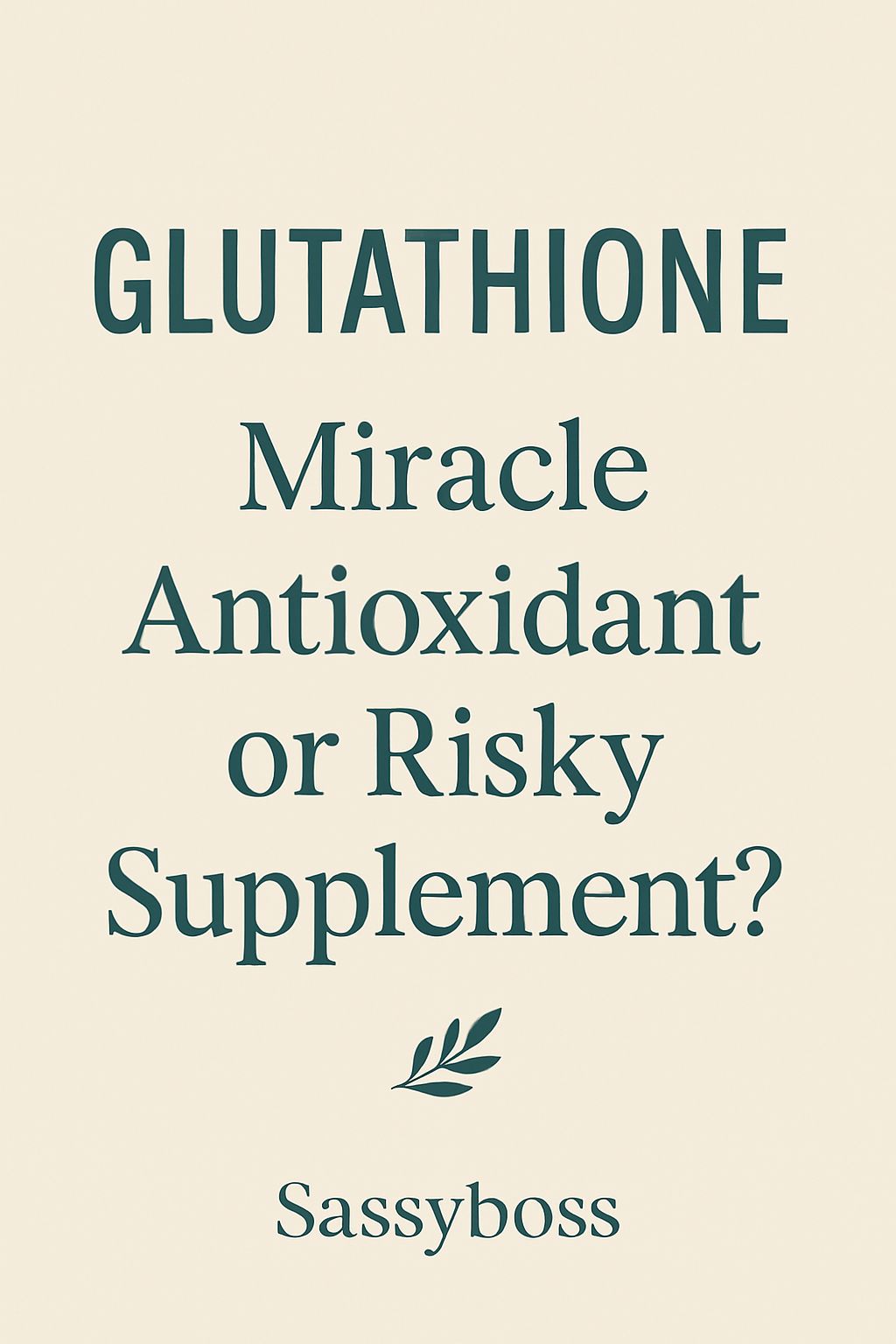Glutathione: Miracle Antioxidant or Risky Supplement?
In the ever-evolving world of health and wellness, antioxidants often take center stage. Among them, glutathione has gained remarkable popularity, hailed by many as a “miracle” for its powerful benefits. But as with any trend, it’s essential to question whether glutathione truly lives up to the hype—or if it carries hidden risks. In this article, we explore the science behind glutathione, its potential benefits, risks, and whether it deserves its growing reputation.
What Is Glutathione?
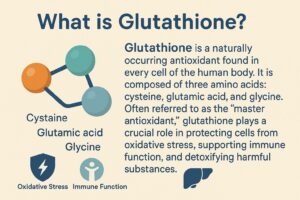
Glutathione is a naturally occurring antioxidant found in every cell of the human body. It is composed of three amino acids: cysteine, glutamic acid, and glycine. Often referred to as the “master antioxidant,” glutathione plays a crucial role in protecting cells from oxidative stress, supporting immune function, and detoxifying harmful substances.
Our bodies produce glutathione naturally, but levels can decrease due to aging, poor diet, stress, environmental toxins, and certain medical conditions. This decline has led to increased interest in glutathione supplementation, either through oral capsules, intravenous injections, or topical applications.
Potential Benefits of Glutathione
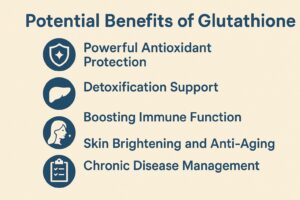
1. Powerful Antioxidant Protection
Glutathione neutralizes free radicals—unstable molecules that can damage cells and contribute to aging and chronic diseases. By maintaining oxidative balance, glutathione helps protect the body from inflammation and cellular damage.
2. Detoxification Support
Glutathione is vital for liver health. It binds to toxins, heavy metals, and waste products, making them easier for the body to eliminate. A well-functioning detox system can enhance overall health, energy, and resilience.
3. Boosting Immune Function
Research shows that glutathione strengthens the immune system by promoting the proliferation of lymphocytes (white blood cells crucial for fighting infection). Maintaining adequate levels may help the body ward off illnesses more effectively.
4. Skin Brightening and Anti-Aging
One of the most popular cosmetic uses of glutathione is skin lightening. It is believed to inhibit melanin production, resulting in a brighter, more even skin tone. Many people also claim it reduces wrinkles and promotes youthful-looking skin.
5. Chronic Disease Management
Some studies suggest glutathione supplementation could benefit people with conditions like Parkinson’s disease, diabetes, and certain autoimmune disorders, largely due to its antioxidant and anti-inflammatory properties.
Risks and Controversies Surrounding Glutathione Supplementation
Despite its many potential benefits, glutathione supplementation is not without controversy:
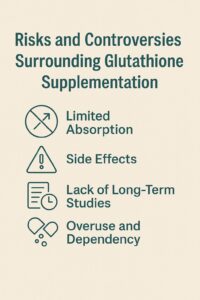
1. Limited Absorption
One major concern is the body’s ability to absorb glutathione taken orally. Some research indicates that oral supplements may be broken down in the digestive tract before they can be effectively utilized. Liposomal glutathione and intravenous (IV) treatments have been developed to enhance absorption, but they come at a higher cost and with added risks.
2. Side Effects
While glutathione is generally considered safe, high doses or long-term use can lead to side effects such as bloating, cramping, allergic reactions, or breathing difficulties. Some individuals have reported skin rashes or asthma-like symptoms after glutathione therapy.
3. Lack of Long-Term Studies
Many of the positive claims about glutathione are based on small studies or anecdotal evidence. There is still a lack of large-scale, long-term research confirming its efficacy and safety for widespread use.
4. Overuse and Dependency
Relying heavily on supplements instead of supporting the body’s natural ability to produce glutathione through diet and lifestyle can be counterproductive. A balanced approach is always best.
Natural Ways to Boost Glutathione
Before jumping straight to supplements, consider natural methods to support your body’s glutathione production:
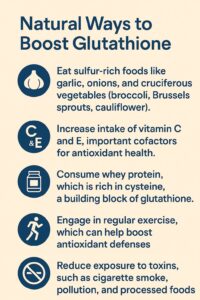
• Eat sulfur-rich foods like garlic, onions, and cruciferous vegetables (broccoli, Brussels sprouts, cauliflower).
• Increase intake of vitamin C and E, important cofactors for antioxidant health.
• Consume whey protein, which is rich in cysteine, a building block of glutathione.
• Engage in regular exercise, which can help boost antioxidant defenses.
• Reduce exposure to toxins, such as cigarette smoke, pollution, and processed foods.
Conclusion: Miracle or Risky?
So, is glutathione truly a miracle antioxidant or a risky supplement? The answer largely depends on how it is used.
There’s no denying that glutathione is critical for health, and some individuals—particularly those with certain medical conditions—may benefit significantly from supplementation. However, for healthy individuals, focusing on a nutrient-rich diet and healthy lifestyle may be a better and safer way to support glutathione levels.
As with any supplement, it’s essential to consult with a healthcare professional before starting glutathione, especially for IV treatments or high-dose protocols. Remember: nature often provides the best support when we nourish our bodies properly.
